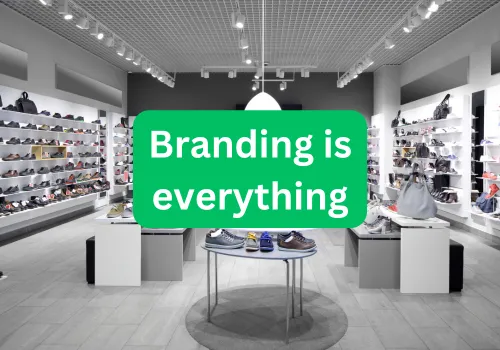Blog

How brand marketing got me to buy a $130 pair of pants
Last week, I was strolling through a popular shopping center in Tampa with my girlfriend. Normally, I’d find a nice, comfy chair to plant myself in while she shops, but not this time.
This time, I was on a rare quest of my own: finding a new pair of pants. Trust me, this doesn’t happen often.
For months, my girlfriend had been raving about these magical pants from Lululemon—pants so amazing that I had to buy them. I’d been putting it off because, let’s be real, I knew they weren’t going to be cheap.
So, on this fateful day, I walked straight into Lululemon with one goal: to see if these “amazing” pants were worth all the hype.
I was skeptical. But I figured, why not? What’s the worst that could happen?
Well, I’ll cut to the chase—I bought the pants. For $128.
Yes, you read that right. $128. For one pair of pants.
What could possibly justify that price tag? These aren’t designer, and they definitely aren’t made of gold.
Here’s the thing: I’m not a big spender. I don’t care about designer brands or luxury stuff. I’m a simple guy. And yet... I still bought the pants.
So, naturally, I had to figure out why. (Because let’s face it, most people don’t stop to analyze why they just spent a small fortune on clothing.)
First off, let me just say: These pants fit like a dream, are super comfortable, stretchy, look amazing, and pretty much tick every box you’d want from a pair of pants.
But that’s not why I shelled out $128.
I bought them because they were Lululemon and had all those great qualities. Not for the qualities alone.
Here’s the thing: When people drop a lot of cash on luxury items, they’ll usually tell you it was the quality that made them do it.
“It’s an investment,” they say. “These pants will last me 10 years—so, really, it’s only $12 a year.”
Sure, that’s a nice justification. And it’s not completely wrong. But it’s not the whole story.
Quality is expected when you’re buying expensive stuff. It’s the baseline. The real reason people buy luxury goods? It’s all about the brand.
Brand perception has way more influence on purchasing decisions than quality, materials, or any feature of the product itself.
Why do you think BMW can charge 30% more for cars that might fall apart in three years? It’s because of what the brand represents.
The brand sells the product, not the other way around.
Think about it: If Walmart made an identical pair of pants and slapped a $128 price tag on them, how many would they sell?
Exactly. Zero.
Same material, same fit, same everything—still no one would buy them. Because it’s Walmart. I don’t even need to explain that, do I?
Luxury items are expected to be high-quality. That’s the bare minimum. But it’s the brand—the story, the reputation, the track record—that makes people open their wallets.
Think about luxury handbags. No one buys a handbag and says, “It’s made from the finest buffalo leather, cured for decades, and could withstand a semi-truck running over it.”
Nope. It’s more like: “This Coach bag is so cute.”
The end.
Now, back to my overpriced (or rightly priced?) pants.
I know these pants will last me a long time. And if they don’t, I’m pretty confident Lululemon will replace them without any hassle.
Did anyone tell me that? Nope. I just assume they will because Lululemon has built such a solid reputation over the years.
That’s the power of brand. I’m so captured by it that I have zero proof, yet I’m convinced they’ll take care of me.
Branding. It’s a superpower.
So, what’s the moral of the story? Invest in your brand. That’s it. Bye.
B2B Marketing
I help companies build a marketing strategy for growth, retention, and efficiency. I use my years of experience to help formulate the correct strategy and plan for businesses.
Local Business Marketing
I work with small businesses to get their marketing to the next level and generate leads, appointments, and sales through tactics focused on small local businesses. See www.chewningdigital.com for more information.
Zack Chewning
B2B Marketing Manager | Strategist | Consultant
Contact
© Copyright 2024. Zack Chewning. All rights reserved.


